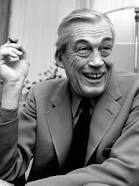
The Man Who Would Be King Page #7
- PG
- Year:
- 1975
- 129 min
- 3,658 Views
...as Peachy's hands will show.
Poor Peachy, who'd never
done them any harm.
He just hung there and he screamed,
but he didn't die.
The next day they came
and took him down...
...and said it's a miracle he wasn't
dead and they let him go.
And Peachy come home
in about a year...
...and the mountains they tried
to fall on old Peachy...
...but he was quite safe
because Daniel walked before him.
And Daniel never let go
of Peachy's hand.
of Daniel's head.
His head?
You knew Danny, sir.
Oh, yes.
You knew most worshipful Brother...
...Daniel Dravot, Esquire.
Well...
...he became the king of Kafiristan...
...with a crown on his head.
And that's all there is to tell.
I'll be on my way now, sir.
I've got urgent business in the South.
I have to meet a man
at Marwar Junction.
Translation
Translate and read this script in other languages:
Select another language:
- - Select -
- 简体中文 (Chinese - Simplified)
- 繁體中文 (Chinese - Traditional)
- Español (Spanish)
- Esperanto (Esperanto)
- 日本語 (Japanese)
- Português (Portuguese)
- Deutsch (German)
- العربية (Arabic)
- Français (French)
- Русский (Russian)
- ಕನ್ನಡ (Kannada)
- 한국어 (Korean)
- עברית (Hebrew)
- Gaeilge (Irish)
- Українська (Ukrainian)
- اردو (Urdu)
- Magyar (Hungarian)
- मानक हिन्दी (Hindi)
- Indonesia (Indonesian)
- Italiano (Italian)
- தமிழ் (Tamil)
- Türkçe (Turkish)
- తెలుగు (Telugu)
- ภาษาไทย (Thai)
- Tiếng Việt (Vietnamese)
- Čeština (Czech)
- Polski (Polish)
- Bahasa Indonesia (Indonesian)
- Românește (Romanian)
- Nederlands (Dutch)
- Ελληνικά (Greek)
- Latinum (Latin)
- Svenska (Swedish)
- Dansk (Danish)
- Suomi (Finnish)
- فارسی (Persian)
- ייִדיש (Yiddish)
- հայերեն (Armenian)
- Norsk (Norwegian)
- English (English)
Citation
Use the citation below to add this screenplay to your bibliography:
Style:MLAChicagoAPA
"The Man Who Would Be King" Scripts.com. STANDS4 LLC, 2025. Web. 10 Mar. 2025. <https://www.scripts.com/script/the_man_who_would_be_king_13284>.







Discuss this script with the community:
Report Comment
We're doing our best to make sure our content is useful, accurate and safe.
If by any chance you spot an inappropriate comment while navigating through our website please use this form to let us know, and we'll take care of it shortly.
Attachment
You need to be logged in to favorite.
Log In